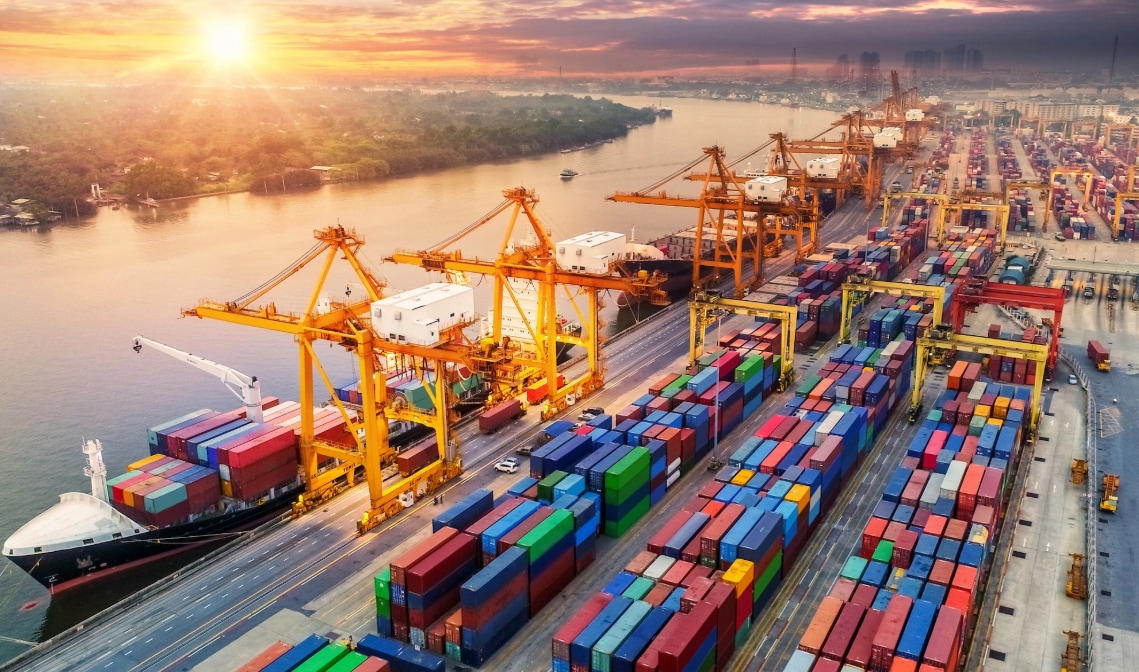Small businesses are key to a more sustainable and inclusive world. Here's why

Small and medium-sized businesses (SMEs) make up 90% of businesses globally.
Image: Pexels.
Stay up to date:
Small and Medium Sized Enterprises
Listen to the article
- Small and medium-sized businesses are well known for their agility and innovation.
- But they are often slow when it comes to adopting environmental, social, and governance practices.
- These businesses need help to become responsible and sustainable within their communities.
Small and medium-sized enterprises (SMEs) are a force to be reckoned with. They make up 90% of businesses globally, create two out of every three jobs worldwide, support the livelihoods of over two billion people, and are indispensable to the smooth functioning of global supply chains.
Despite their enormous impact, many are not yet fully engaged on environmental, social, and governance (ESG) issues. It is easy to understand why. The EU, for example, classifies small businesses as those with 11-49 people and revenues below €10 million a year. A medium-sized business has 50-249 people and annual revenues of up to €50 million.
Owners and managers in such firms have a lot on their plate, and fewer resources than their larger rivals. They may feel they lack the time, knowledge, capacity or funds to tackle problems like the climate crisis or discrimination against minorities. Others simply do not know where to start. But we do need SMEs to work for a better world – for their own sake and for everyone.
Why measuring up on ESG matters for SMEs
Despite the jargon, ESG is about doing all you can to stop or minimize any harmful effects of your business on the environment. It’s about treating your staff and your customers fairly, without discrimination. And it’s about obeying laws and doing the right thing for the places and the people where you operate throughout your supply chain.
These are guiding principles that any business should strive to work by. And they can deliver a raft of benefits, from reducing costs to managing the risk that things will go wrong, meaning the company will be forced to close.
Change is coming for SMEs whether they like it or not. ESG reporting standards and regulations are evolving fast. For example, the German Act on Due Diligence in Supply Chains, effective since January 2023, and a parallel EU initiative, the Corporate Sustainability Due Diligence Directive, are part of a growing global drive to oblige companies to carry out human rights and environmental due diligence across their supply chains. If required, companies must show they have identified actual or potential risks to people and the environment. The evidence must be obtained from suppliers or the suppliers’ own suppliers.
As a result, SMEs that fall behind on ESG risk losing valuable opportunities with big companies, particularly where regulation or capital depends on it, unless they can match the ESG standards of their customers.
To remain on the right side of clients, business partners, and regulators, SMEs must show they are meeting society’s social and governance expectations – and reducing their greenhouse gas (GHG) emissions.
But presenting smaller companies with a long ESG checklist and making compliance mandatory is not the best approach.
How is the World Economic Forum helping companies track their positive contributions towards achieving the Sustainable Development Goals?
Making the business case for ESG
The right way is to frame ESG as a driver for innovation, impact, and growth, rather than as a compliance issue. At present, most SMEs view ESG programmes as an unnecessary expense and don’t see the benefits. In UN Global Compact surveys, fewer than half of companies with a turnover under $25 million report on their sustainability performance. Among big groups with revenues above $1 billion, 94% do.
SMEs need to be shown the business case for adopting ESG: how it reduces risks and can help cement relationships with important clients. This is where larger companies with their greater access to technology, knowhow, and resources, can help. Indeed, some are already doing so.
The Italian energy group Eni, for example, has made an open-to-all digital platform, Open-es, available so companies can learn to measure and report their sustainability data in a way that is comparable and shareable. The platform has a social network built in to help companies find new partnership opportunities along the supply chain. To date, more than 4,000 companies from 76 countries have joined, and 80% are SMEs.
Ikea is another global company that works with its suppliers to create sustainable value chains. It helps SMEs access renewable energy by negotiating bundled clean power contracts for groups of suppliers. Ikea expects all of its suppliers to sign a code of conduct that takes its cue from the 10 Principles of the UN Global Compact. This sets clear expectations for environmental, social, and working conditions, as well as animal welfare. But the group also has a “staircase model” that helps suppliers continually improve their ESG performance.
The UN Global Compact, the world’s largest corporate sustainability initiative, also stands ready to help SMEs through its “Local Networks”. These operate in 69 countries and are uniquely positioned to help companies understand what responsible business means within different national, cultural, and language contexts. Its SME engagement strategy is developing specific resources and programmes tailored to the needs and interests of SMEs.
SMEs must seize every opportunity to embrace and advance ESG because there is no time to waste. We only have a few years left to alter the trajectory of our GHG emissions, reduce global inequalities, and achieve the substance of the 2030 Agenda for Sustainable Development. Individually, the contribution of each SME might be modest, but collectively they could make a whole world of a difference.
Accept our marketing cookies to access this content.
These cookies are currently disabled in your browser.
Don't miss any update on this topic
Create a free account and access your personalized content collection with our latest publications and analyses.
License and Republishing
World Economic Forum articles may be republished in accordance with the Creative Commons Attribution-NonCommercial-NoDerivatives 4.0 International Public License, and in accordance with our Terms of Use.
The views expressed in this article are those of the author alone and not the World Economic Forum.
Related topics:
Forum Stories newsletter
Bringing you weekly curated insights and analysis on the global issues that matter.
More on BusinessSee all
Elena Raevskikh and Giovanna Di Mauro
July 23, 2025
Manikanta Naik and Murali Subramanian
July 23, 2025
Stephanie Dunn and Firuze Alpaydin
July 22, 2025
Goodness Esom
July 18, 2025
Juan Caballero and Ana Sampaio
July 18, 2025
William Dixon
July 16, 2025





